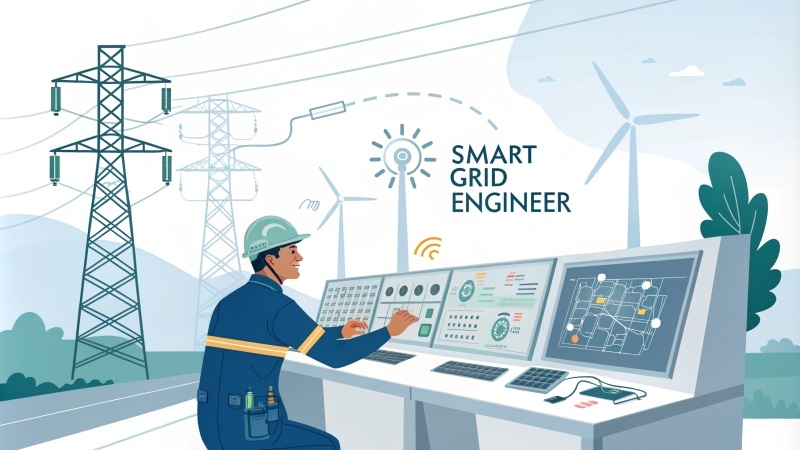Smart Grid Engineer

The Smart Grid Engineer is an essential specialist in the field of energy technologies, with the main objective of improving the efficiency and reliability of electrical networks. It deals with the design, implementation and management of intelligent systems that enable more efficient distribution of electricity. By using advanced technologies, the Smart Grid engineer optimizes energy consumption and integrates renewable energy sources into existing networks.
A Smart Grid Engineer’s primary responsibilities include assessing electrical infrastructure, analyzing energy consumption data, and identifying opportunities for improvement. The engineer also collaborates with interdisciplinary teams to develop innovative solutions that meet the requirements of sustainability and energy efficiency. The use of advanced communication technologies and monitoring tools is crucial to ensure a quick reaction to fluctuations in energy demand and to prevent losses.
In addition to technical skills, Smart Grid engineers must have excellent communication and collaboration skills as they often work with regulators, utilities and communities. The education required for this profession usually includes a degree in electrical engineering or a related field, and hands-on experience in energy infrastructure projects is often a plus.
Thus, Smart Grid engineers play a vital role in the transition to a more efficient and sustainable energy system. They contribute to building a future where energy resources are managed efficiently, benefiting both consumers and the environment.